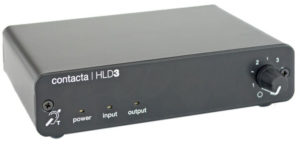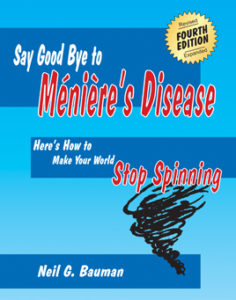by Neil Bauman, Ph.D.
A concerned parent wrote:
Our six-year-old daughter was recently diagnosed with LVAS. Our doctor tells us she has already lost all useful hearing in one ear, so we are obviously very protective of her good ear. We are now struggling with the right balance on activity restrictions. She is an enthusiastic swimmer on our community’s summer swim team. The swimmers are taught to enter the water using a racing dive. We understand that diving is not recommended, but we could use some help with the fine points.
It’s clear to us that she should stay off of the high dive, but what are the risks associated with diving from a low diving board? What about a racing dive from the side of the pool (used in competition)? Are the pressure changes in the ear the main concern (which wouldn’t seem like a risk with a racing dive) or is there a significant risk of hitting the water wrong and causing head injury?
Also, any advice you have on whether or not participation in gymnastics (mat activities like tumbling, not a high balance beam) would be reasonably safe would be very helpful. We are erring on the side of caution right now and not allowing it, but our daughter is doing somersaults and cartwheels in the grass anyways. She may well be safer if she is taught to do them properly and practicing on a better padded surface.
It is interesting that so far in her life, the various “trauma” incidents she has already experienced have only caused your daughter to lose her hearing in one ear, but not the other. To me, this indicates that her good ear is more robust, or not as affected by trauma as her bad ear. This is good news. Perhaps her LVAS will not affect the hearing in her good ear in the future either—but there are no guarantees—hence the need to still be cautious.
As far as pressure is concerned, since your daughter has LVAS, she should only shallow dive—in other words, not let her head go more than 5 or 6 feet underwater. This keeps the pressure change to a minimum and should not aggravate her LVAS which could cause more hearing loss.
When she dives, whether on a diving board or a racing dive, if she has her hands over her head, which breaks the force of the water hitting her head, there shouldn’t be any “trauma”. Thus, as far as I can see, this should be ok.
In regards to doing gymnastics, I’m with you. She should learn to do it right and avoid trauma to her head. If she does not hit her head, or flip with such force that internal pressure builds up in her skull, she should be ok as I see it.
As always, there are no guarantees. If any activities result in hearing loss, those (and kindred) activities are out unless she wants to risk further hearing loss in the future. However, if any activities do not produce any hearing loss (or balance issues), then you should let her continue to do them. In other words, don’t unduly restrict her unless/until that activity (or similar activity) is proven harmful to her ears.



Leave a Reply